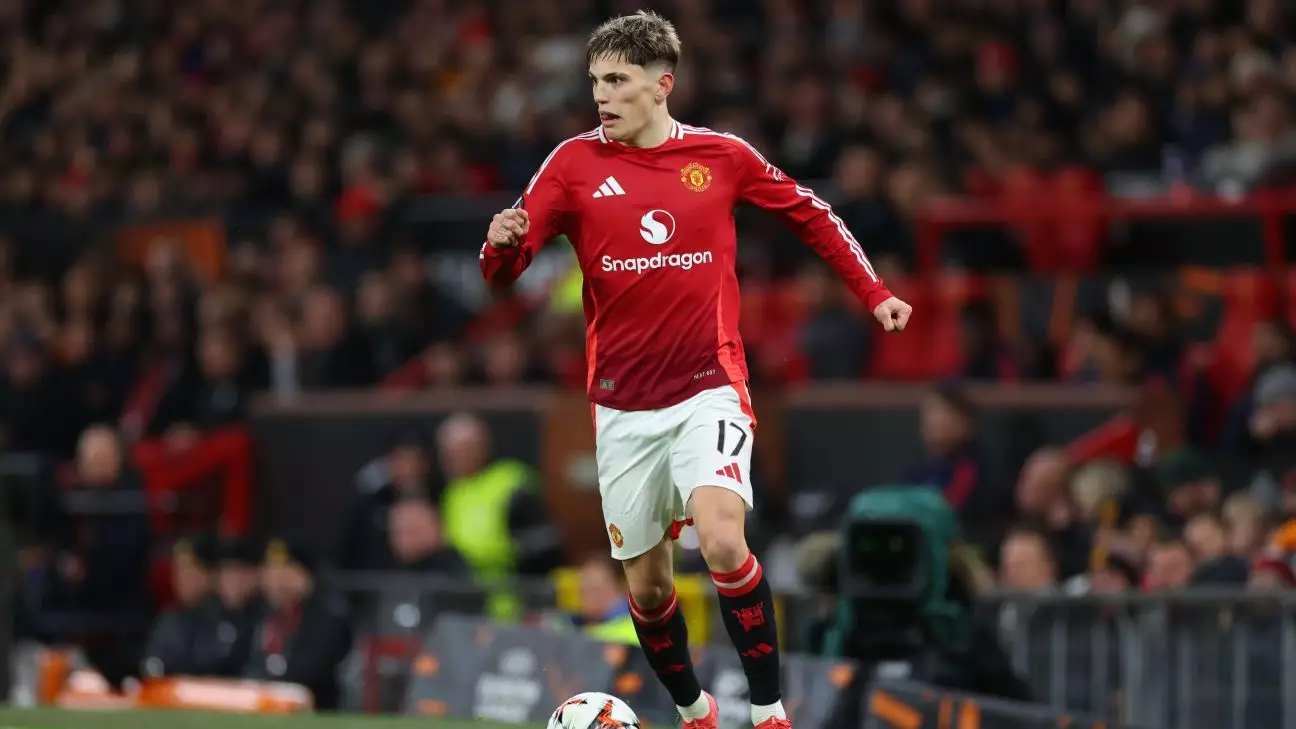In the ever-shifting landscape of football transfers, clubs often find themselves in a delicate balancing act between ambition and financial prudence. Napoli’s recent discussions regarding the potential acquisition of Alejandro Garnacho from Manchester United serve as a salient example. The Serie A leaders stand firm in their commitment to not overspend, despite the allure of acquiring a prodigious talent like Garnacho, who has already made a substantial impact at United.
Negotiations and Valuations
The dialogue surrounding Garnacho’s transfer illustrates the classic tensions in football negotiations. Despite Napoli’s opening offer of around €50 million being firmly rejected by Manchester United, which has positioned Garnacho’s market value significantly higher, Napoli’s sporting director Giovanni Manna maintains a composed stance. He emphasizes that while Garnacho is indeed on their radar, the club remains committed to evaluating all available options and adhering to financially sound principles. The impression conveyed by Manna is not only one of caution but a strategic foresight indicative of modern football management.
Impact of Key Player Departures
The potential signing of Garnacho is partly motivated by Napoli’s need to fill the void left by Khvicha Kvaratskhelia’s transfer to Paris Saint-Germain. Garnacho and Borussia Dortmund’s Karim Adeyemi have emerged as primary targets, yet Manna’s acknowledgment that they are contemplating various avenues speaks to a broader recruitment strategy rather than reliance on a single player. This nuanced approach not only mitigates risk but cultivates a more flexible squad structure, which may prove beneficial in both domestic and European competitions.
Manna’s comments about respecting transfer parameters point to the harsh economic reality that many clubs face in today’s market. Even with the financial windfalls that accompany player sales, maintaining sustainable wage structures is imperative. While Garnacho’s impressive season—33 appearances, eight goals, and five assists—attests to his potential, any transfer must align with Napoli’s financial framework. This underscores a critical aspect of modern football: the necessity of strategic planning and fiscal responsibility amidst rampant inflation within player markets.
As negotiations loom, the scenario also raises questions about Manchester United’s strategy regarding young talents like Garnacho. Locked into a contract until 2028, United evidently values his contribution as a vital asset for the club’s future ambitions. However, with financial strains apparent, the Red Devils may face dilemmas if substantial offers emerge. This situation poses a significant crossroads for United, forcing them to reevaluate their long-term strategy in light of fiscal necessities and competitive aspirations.
Napoli’s consideration of Alejandro Garnacho, alongside their broader recruitment strategy, exemplifies a thoughtful approach to squad building in contemporary football. Their steadfast commitment to adhere to financial constraints not only positions them as a responsible steward in the transfer market but also preserves their competitive integrity. As clubs navigate the complexities of talent acquisition amidst economic pressures, this narrative of Napoli serves as a critical reminder of the virtues of prudence, thoughtfulness, and strategic vision in football management. Ultimately, fans and stakeholders alike can expect a landscape that may evolve yet remains anchored by the principles of balancing ambition with sustainability.

Leave a Reply